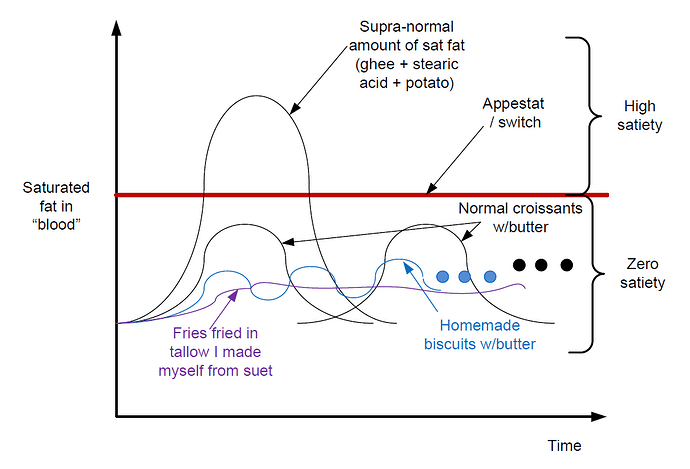May we present possible topics for consideration?
Here’s 1: Hormones and satiety.
Why is it that I often get more full hours after eating? Why is it that when I eat, I get hungry? For instance, there are plenty of times when if I wasn’t eating dinner with my family, I would not eat. But if I do eat, I can eat a normal meal.
I believe these are hormone effects, but I don’t know, don’t know which ones, and don’t know whether I can affect these.
Here’s 2/3: Protein.
I gained 20+ pounds trying the Croissant Diet. I have (re)lost a lot of that by going to back to lower fat, higher protein keto. Many of my days are well beyond the “high” level of protein advocated by the 2 keto dudes. Not all, but many. Now, I’m also relatively muscular, an older male, and doing body weight training 1+ hours twice a week to failure. (To failure = if I’m doing pushups, I do them until I cannot do them anymore. Almost every set is like this.)
I have found over the years (low carb/keto since 1/1/14, other than tests like The Croissant Diet) that I do well on lower fat, higher protein keto.
But Amber O’Hearn believes some people do better on higher fat, and also eating fat first. It’d be interesting to get her take.
And, of course, there are others like Ted Naiman who believe protein is hyper-important and believe fat intake causes one to get fat.
Two different takes, and it’d be interesting to see if there’s common ground.




